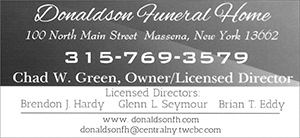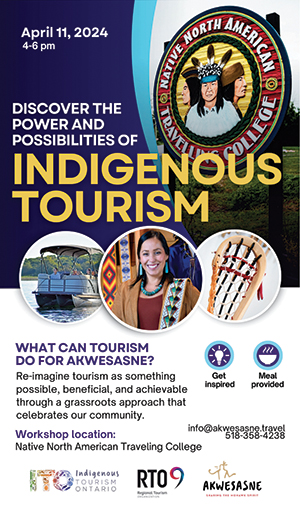News from Tsiionkwanonhso:te (Akwesasne's Long Term Care Facility)
Submitted by Tsiionkwanonhso:te Activity Proogram
Traditionally, communal living was practiced by families living in Longhouses. Imagine sharing your living space with your Mother’s relatives (her Mother, sisters, and aunts), sharing the workload and dividing tasks to give everyone a safe and secure home.
This concept is the basis for the long term care facility called Tsiionkwanonhso:te (Our Home) located on Kawehno:ke (Cornwall Island), Akwesasne, Ontario.
Similar to the rules that govern us as a People (The Great Law, Kariwiio, Annual Cycle of Ceremonies) there is a ‘Great Law’ named: Ministry of Health and Long Term Care Act, 2007 (MHLTC Act) with regulations that govern the long term care industry. The Home’s responsibility to inform family members of their right to establish a Family Council is the reason for this writing.
Q: What can a Family Council do? What are its powers under the Act?
A: The Act outlines several powers of a Family Council such as providing assistance, information and advice to residents, family members of residents and persons of importance to residents, including when new residents are admitted to the Home; advising residents, family members of residents and persons of importance to residents respecting their rights and obligations under the Act; sponsoring and planning activities for residents; advise the licensee of any concerns or recommendations the Council has about the operation of the Home, and others. As each Family Council is unique, the activities of each Family Council will vary.
Traditionally, the Akwesasne Mohawk community has volunteer groups that ‘grew’ out of an identified need and provide assistance (Christmas basket drive, families in need after house fires), information and advice to community members (Death Benefits Committee) and sponsoring and planning activities for community members dealing with a new diagnosis.
Q: What does the Act say about the membership of a Family Council?
A: The Act also indicates who can and cannot be a member of the Council. Persons who are not eligible to be members of the Council include the licensee of the Home, Home management, an officer or director of the licensee or of a corporation that manages the Long-Term Care Home on behalf of the licensee, a person with a controlling interest in the licensee, the Administrator of the Home, any staff member, and any person employed by or in a contractual relationship with the Ministry of Health and Long-Term Care.
As Family Councils are autonomous and self-governed, they are responsible for creating their own Terms of Reference which outlines the group’s goals, structure and operating procedures, including membership. Each Council sets its own membership including who may be a member and how long people can be Council members.
Similarly, Mohawks of Akwesasne have set their own Membership Code and can determine who can identify as an Akwesasne Mohawk. There has never been an established Family Council at Tsiionkwanonhso:te since its inception. Now is your opportunity to be part of a new beginning and request the establishment of a Family council.
According to Section 65 of the Act, the licensee (Mohawk Council of Akwesasne) has a duty to cooperate with the Family Council and cannot interfere with the meetings or operations of the Council. Section 67 indicates that the licensee has a duty to consult regularly with the Family Council - at least every three months.
The Act says that every Home may have a Family Council and that a family member or person of importance to a resident may request that a Family Council be established. The licensee must assist in the establishment of a Family Council within 30 days of receiving a request from a family member or person of importance to a resident.
Many Family Councils have positive and productive relationships with the staff and administration of the Home. Many staff members and administrators go above and beyond what is prescribed in the Act. The relationship between the Council and Home staff and administration is important to a successful Family Council as it helps to ensure good communication and successful activities and initiatives of the Council.
For more information, check out the Family Councils of Ontario website: https://fco.ngo/family-councils/faqs.
Or call 613.932.1409 (Tsiionkwanonhso:te).






Reader Comments(0)